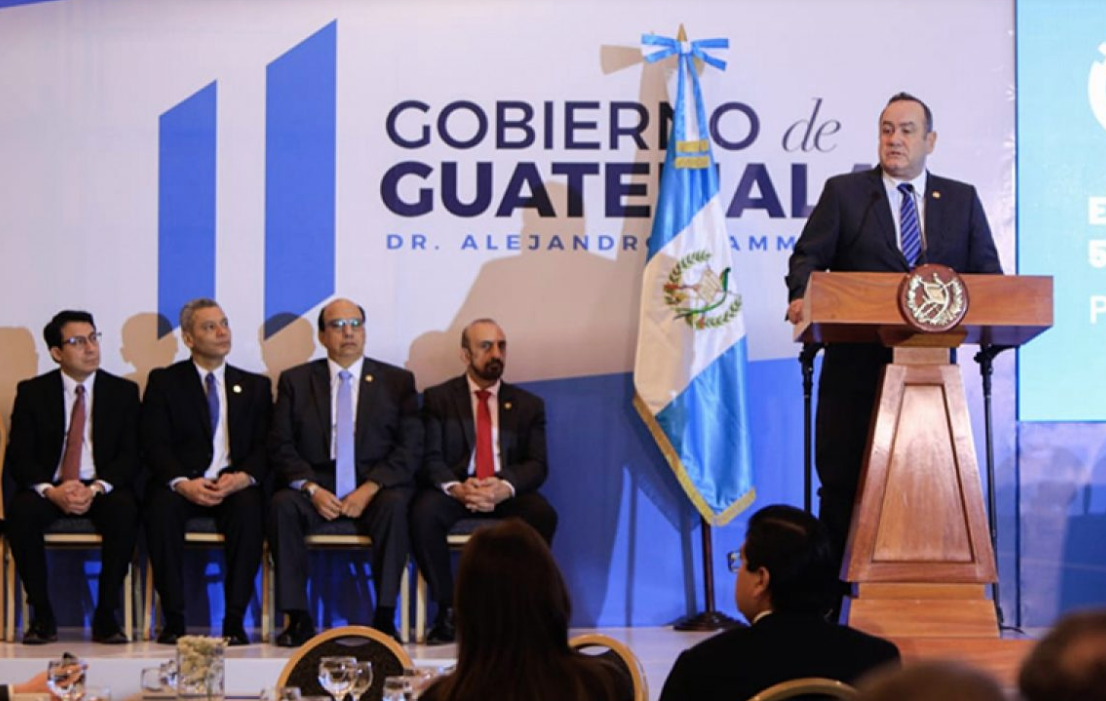Guatemala is a country in which the weak State has been captured for decades, on the one hand, by an alliance between business and organized crime, on the other, by a political class made up including both, deputies and members of the Executive, in a clear interconnection. This situation has been exacerbated during the COVID-19 pandemic when states of siege were decreed in areas occupied by mining companies to persecute community leaders and in areas of social conflict.
In this regard, several situations can be mentioned considering the persecution by the government of President Alejandro Giammattei of members of the judicial branch whose mission is to carry out certain tasks related to acts of corruption or protection of human rights violations. In addition, the consolidation of impunity with which the government covers up the environmental abuses of which transnational mining companies in collusion with the national elite are the beneficiaries need to be mentioned.
In the first ambit, the dismantling of uncomfortable justice officers who have maintained an independent attitude has been a dominant aspect in recent times. Thus, Juan Francisco Sandoval Alfaro, former Chief of the Special Prosecutors Office Against Impunity, who was already being persecuted by the State apparatus since the government of the former president, Jimmy Morales. When he uncovered the Carpet case – which Russian mining businessmen brought it to the presidential house and in which there were bundles of bills worth thousands of dollars – triggered the detonator for his departure into exile, first to El Salvador and then to the United States.
In the same direction, on March 9, judge Erika Aifán followed the same route as Sandoval Alfaro, thus joining a list of 15 justice officers who have recently left the country. Aifán was leaving a career of almost 20 years in office, in which she had dealt with corruption, money laundering or drug trafficking cases involving dozens of the country’s most powerful businessmen, politicians and criminal bosses, up to and including President Giammattei himself.
As the last milestone, so far, of this dismal scenario and in a similar direction, the Supreme Court of Justice suspended on March 22 the anti-corruption judge Pablo Xitumul, known for his fight against corruption and the handling of cases involving high-ranking members of the Armed Forces.
In the second ambit, in October 2021, police and Army forces entered some communities in El Estor, a town near the Caribbean coast, using as a legal shield the state of siege decree established for this town in the context of the pandemic.
Then, a family of local activists in defense of the environment, persecuted by the State and by the mining company, was detained by the police forces who seized computers and material stored in a Catholic community radio station.
Like many others, they were extremely exposed and without any support or protection for their struggle against the Swiss-Russian company Solway, owner of an open-pit nickel mine. Santa Catarina Ixtahuacán and Nahualá, located in the west of the country, are also areas of conflicts that are also taken over by organized crime.
This scenario, which indeed recently had started when former attorney general Thelma Aldana was blocked in her presidential race with the Semilla Movement and had to go into exile in the United States in 2019, is, on the other hand, in line with the country’s performance in other indicators. Thus, the Transformation Index of Bertelsmann Foundation for 2022 places Guatemala as the fourth worst performing country in the region, surpassing only Nicaragua, Cuba and Venezuela, something already pointed out by The Economist Intelligence Unit’s index for 2021.
Both measurements confirm the aforementioned scenario, which is also in line with the country’s 150th place out of 180 in the Corruption Perceptions Index, carried out by Transparency International. The report stresses that the rarely mentioned case of Guatemala, whose level of income from its emigrants’ remittances places it second in all of Latin America after Mexico (US$11 billion), places the country at the tail end of Latin American political performance. Its character as a semi-failed State is combined with a high deterioration of its democratic institutions, which brings it to the edge of authoritarianism.
On March 24, António Guterres, the United Nations Secretary-General, expressed his concern about this problem and pointed out the important contribution that Guatemalan judicial officials have made in the fight against impunity and corruption, a task that for years was supported by the work of the International Commission against Impunity in Guatemala (CICIG), dismantled, however, with disgrace in September 2019.
Translated from Spanish by Janaína Ruviaro da Silva












